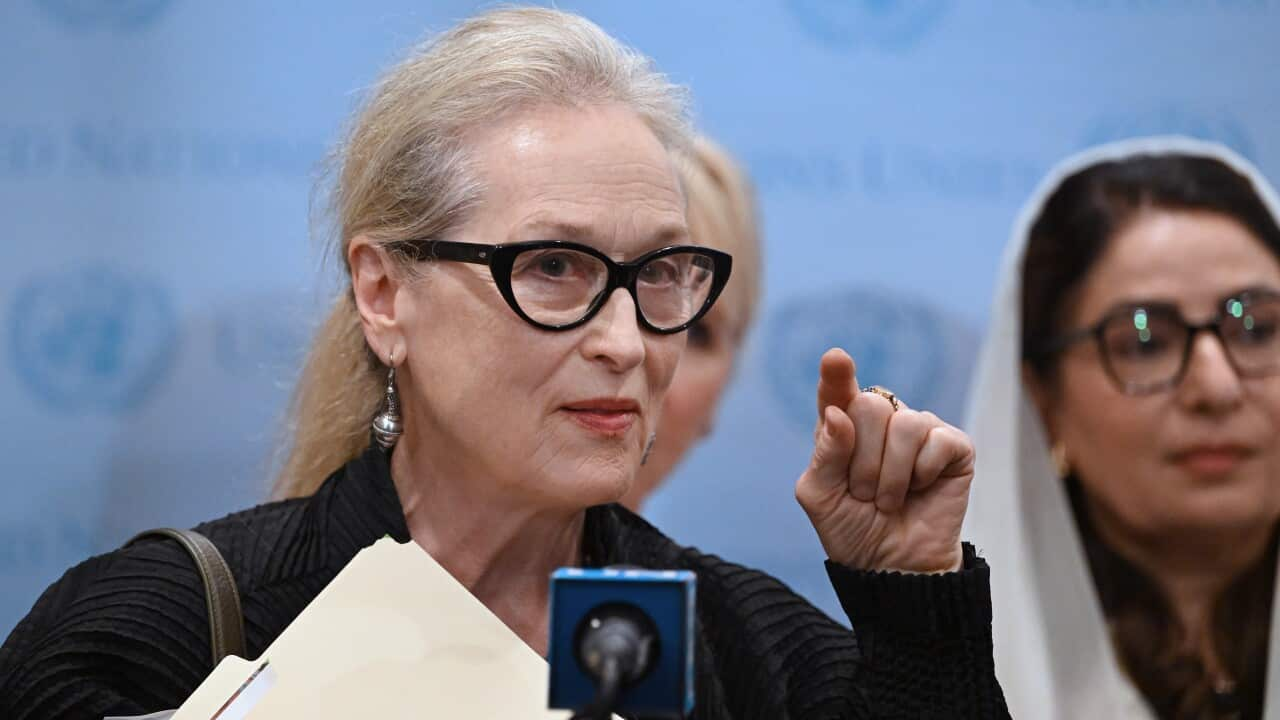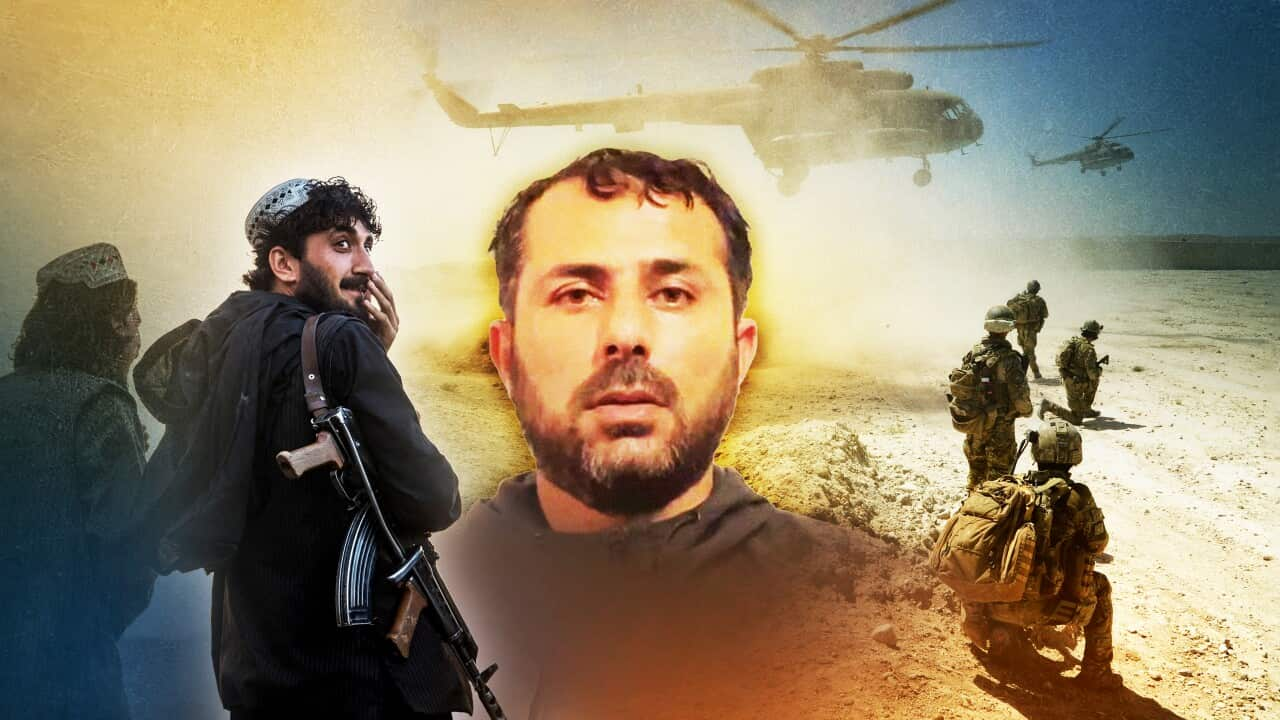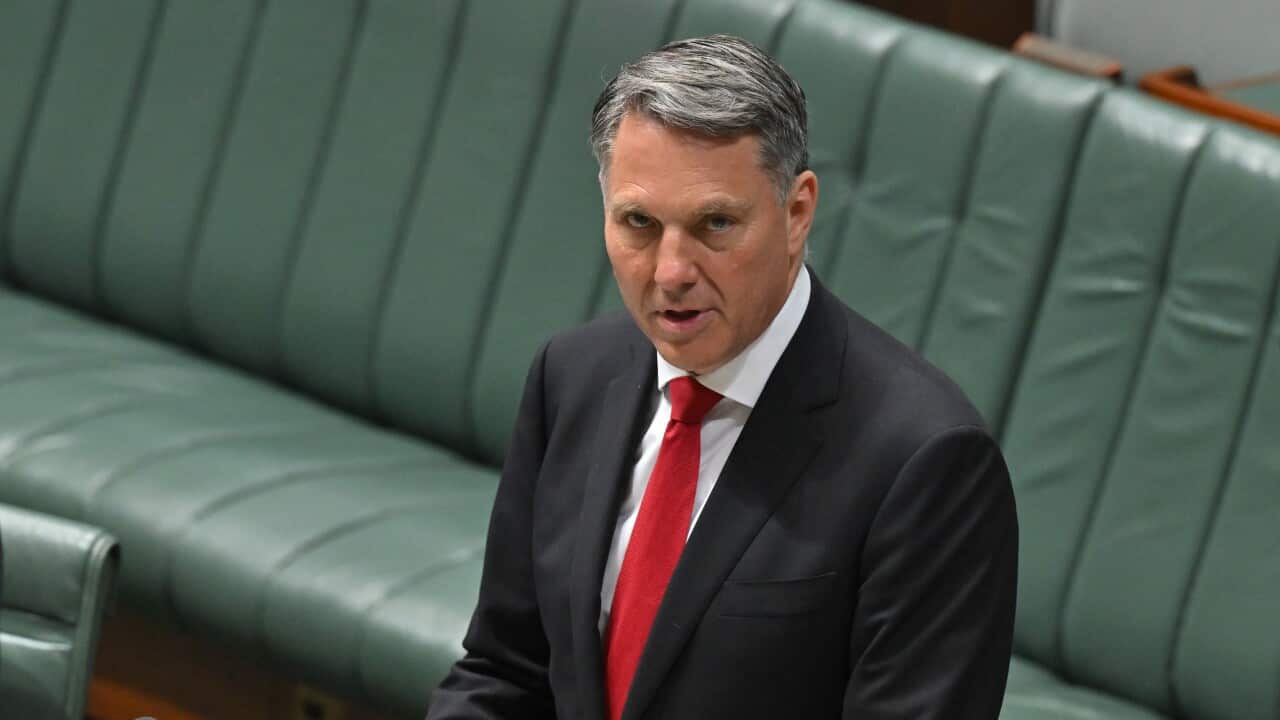Stream free On Demand

Murder In Afghanistan
episode • Dateline • Current Affairs • 28m
episode • Dateline • Current Affairs • 28m
On the outskirts of Tarin Kowt, Australia’s base for much of its 20-year military operation against the Taliban in Afghanistan, lies Sola.
It’s a quiet little village, a jumble of laneways, mud brick huts and fields.
On the evening of 31 August 2012, evening prayers were interrupted by the sound of Australian helicopters and trucks, carrying soldiers from Australia’s elite Special Air Service (SAS), including now-disgraced Victoria Cross recipient Ben Roberts-Smith.

Ben Roberts-Smith was one of the shooters in Sola, during the hunt for Hekmatullah. His lawyers have previously stated that he has always followed the rules of engagement. Source: Getty / Stefan Postles
Soon after the SAS soldiers' arrival in Sola, the village's elderly imam and his adult son were shot dead.
Locals say it was an execution, but an Australian Defence Force (ADF) investigation found the killings were justified.
Dateline journalists are the first Australian reporters to visit Sola and directly speak to witnesses in search of answers.

The village of Sola, located near the base at Tarin Kowt where three Australian soldiers were murdered. Source: SBS / Colin Cosier
The witness
Haji Gul Mohammad, a farmer and village elder, will never forget that night.
He invited me to sit with him and drink tea, as he began to tell his story.
"We were praying night prayers when the Australian forces arrived," he explained in Pashto.

Gul Mohammad (centre), a farmer from Sola, witnessed the events leading up to the killings of the local imam and his adult son. Source: SBS / Colin Cosier
Gul Mohammad wanted to show it to us and led me down a dusty path to the scene of first contact with the Australian soldiers.
He explained where the imam was; facing the front of the mosque, with other worshippers in a line behind him. Pointing to either side of the building, he said the soldiers came from all directions.
I asked him if he remembered what they looked like. He pointed back at me and told our interpreter: "They looked like him. All of them were tall."
"They handcuffed our hands behind our backs, covered our eyes and then took us by the arms to the yard."
It was there the imam was killed.
Since the men were blindfolded, none saw the killing, they only heard it.
Under the Geneva Convention, it is a war crime to harm an unarmed detainee or person under control.
The courtyard

Haji Gul Mohammad heard gunfire and when Australian soldiers had left the village he found the imam dead. Source: SBS / Colin Cosier
He alleged the imam was shot three times.
"He was not a member of the Taliban and had nothing to do with the Taliban," he insisted.
"He was simply the imam of our mosque and also worked as a carpenter."
The son
The imam was not the only person killed that night.
Mullah Jalil was the imam’s adult son.
His body was found in the laneway that leads towards the mosque. He had not been detained with the older men.
When the Australian soldiers entered the village, locals were told to stay inside.
It meant no one witnessed the shooting of Jalil.
But several people saw his body once the SAS soldiers had left.
"He was wearing white clothes which were stained red with blood," one man told me.
"We didn’t see the injuries or where he was shot."
The hunt

The raid on Sola was part of the manhunt.
Gul Mohammad says he knows the story of Hekmatullah but denies the soldier was ever in Sola.
"No he was not in this village. He had no contact with anyone here."

Hekmatullah was an Afghan soldier who shot and killed three Australian soldiers who were playing cards. He escaped after the murders but was eventually captured in 2013 and served 7 years behind bars.
The inquiry
A leaked 2012 ADF inquiry found the killings in Sola were within the rules of engagement.
It said the imam was using a radio and failed to comply with an order so was shot dead. It also stated that his son Jalil tried to grab a soldier’s weapon.
It named one of the shooters of the imam as Corporal Ben Roberts-Smith.
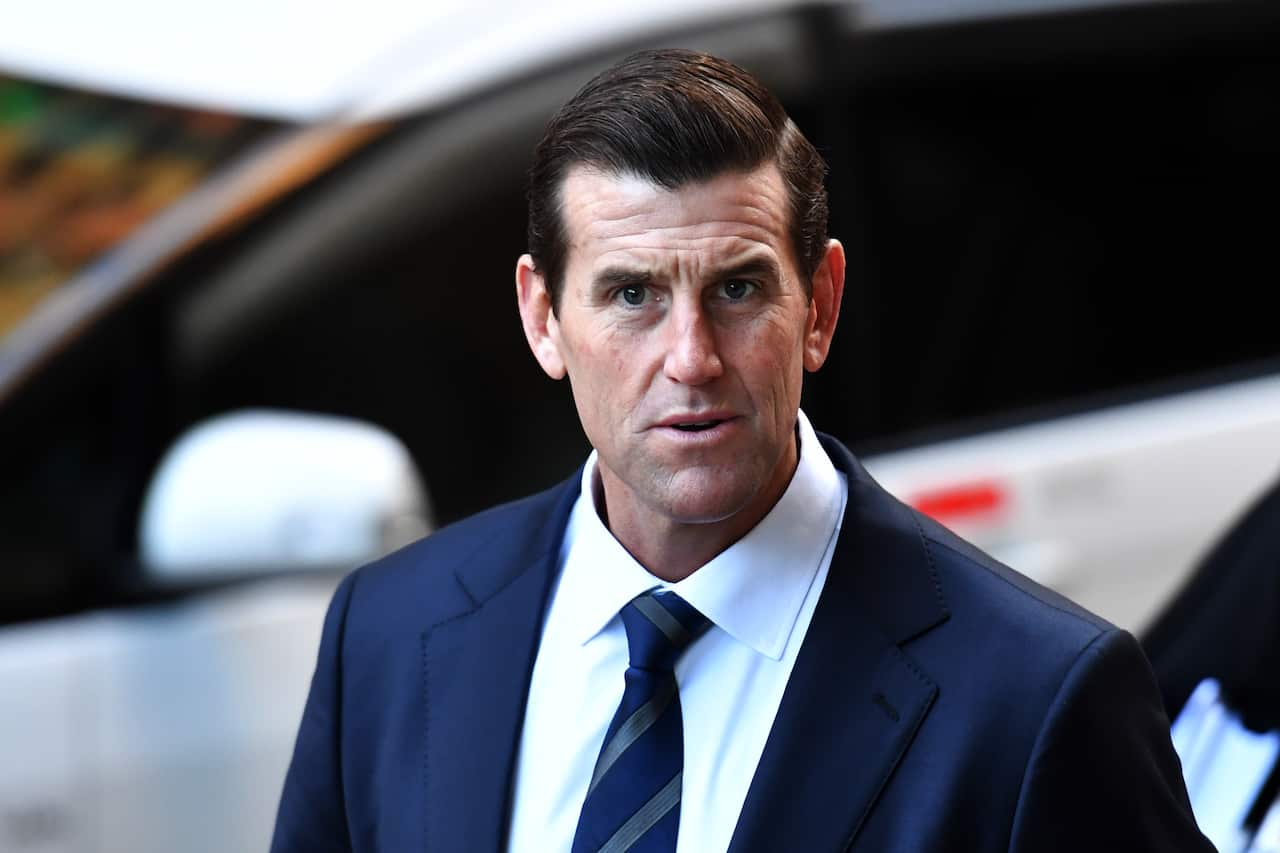
Victoria Cross recipient Ben Roberts-Smith did not respond to Dateline’s questions. Source: Getty / Sam Mooy
That civil defamation case did not relate to the killings in Sola.
Roberts-Smith denies any wrongdoing and is appealing the case. He has not been criminally charged. In relation to the deaths in Sola, his lawyers have previously stated that he has always followed the rules of engagement.
But in Sola, Gul Mohammad denied the ADF’s account of what took place.
"No, there was nothing. It’s a lie," he told me.
"Whoever says this, if the soldiers said they had something (a radio), they had nothing."
Dateline contacted the ADF and Roberts-Smith seeking a response to the allegations raised in the program.
Roberts-Smith did not respond and the ADF did not answer Dateline’s questions.
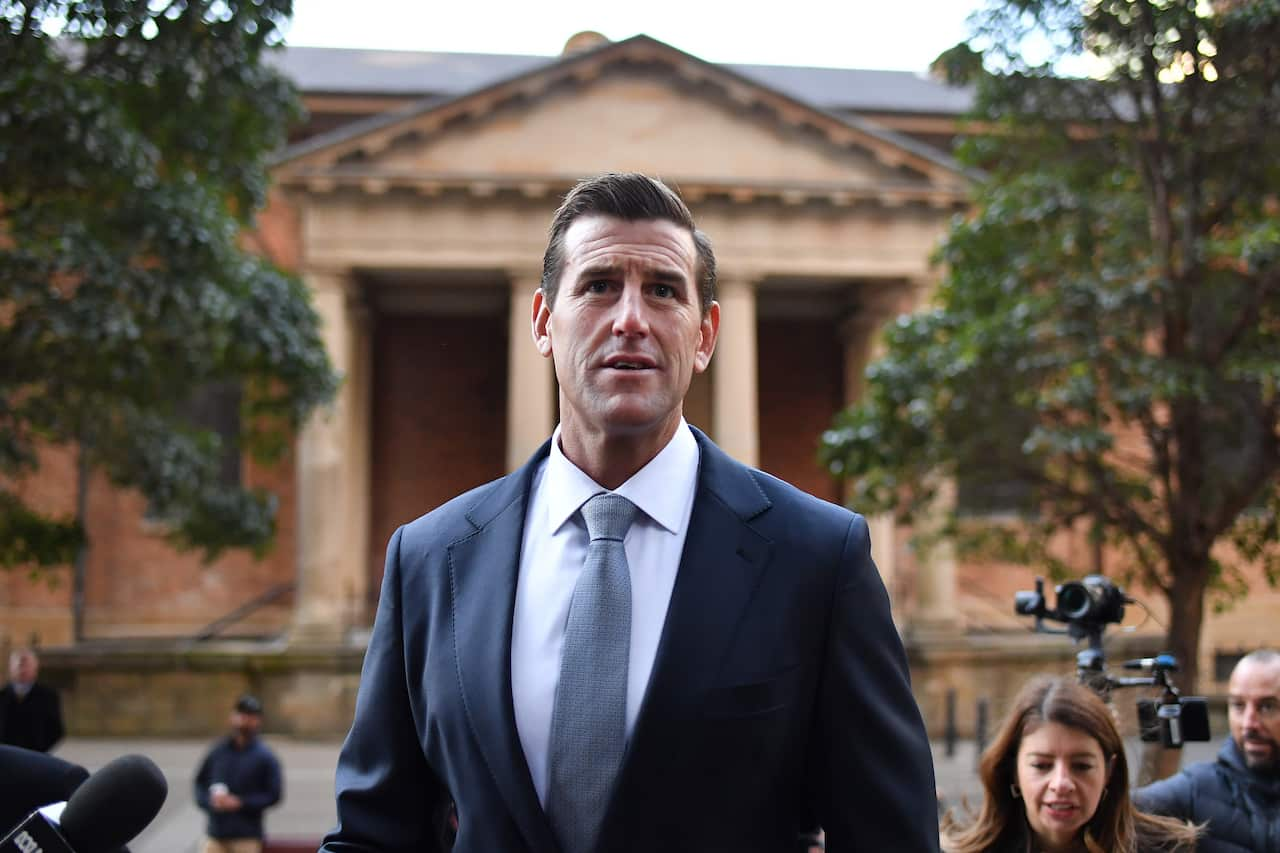
Ben Roberts-Smith outside the Federal Court in Sydney during his defamation trial in 2021. Source: Getty / Sam Mooy
The investigation
In 2020 the Brereton report – the inquiry into allegations of misconduct by Australian soldiers in Afghanistan between 2005 and 2016 - found credible evidence that in 23 incidents, 39 Afghans had been unlawfully killed. Whilst the findings of the report are public, details about the incidents have been redacted, so it is not known if the killings in Sola are amongst those recommended for investigation.
The Office of the Special Investigator (OSI), is working with the Australian Federal Police to investigate these alleged war crimes.
But so far, no one from the OSI has been to Afghanistan to speak to witnesses or assess the locations where killings took place.
In response to questions from Dateline, the OSI said: "investigations are able to progress without travel to Afghanistan", which it considers "extremely dangerous".
The OSI said it now has 20 active investigations, eight fewer than in February when it reported to Senate Estimates.
It also said the OSI remains "conscious of the importance of our work to Australia’s national interest".

Haji Gul Mohammad said there are multiple witnesses to the events surrounding the shootings in the village. Source: SBS / Colin Cosier
"I will testify that these people were martyred innocently."
He pointed to the growing crowd around us.
"This man is a witness, that person is a witness and the other is a witness. In this village, you can find ten other witnesses."
Before we left, he had a question for me.
"Are the soldiers who committed this crime, who martyred these two people currently free or in prison?"
I told him they’re not in jail, nor have they been charged.
"They should be tried," he exclaimed, growing agitated.
"The soldiers who committed atrocities are roaming free."
"They should be dragged to the international courts."
Gul Mohammad’s account of what happened during the raid on the 31 August 2012 has not been tested in court.


